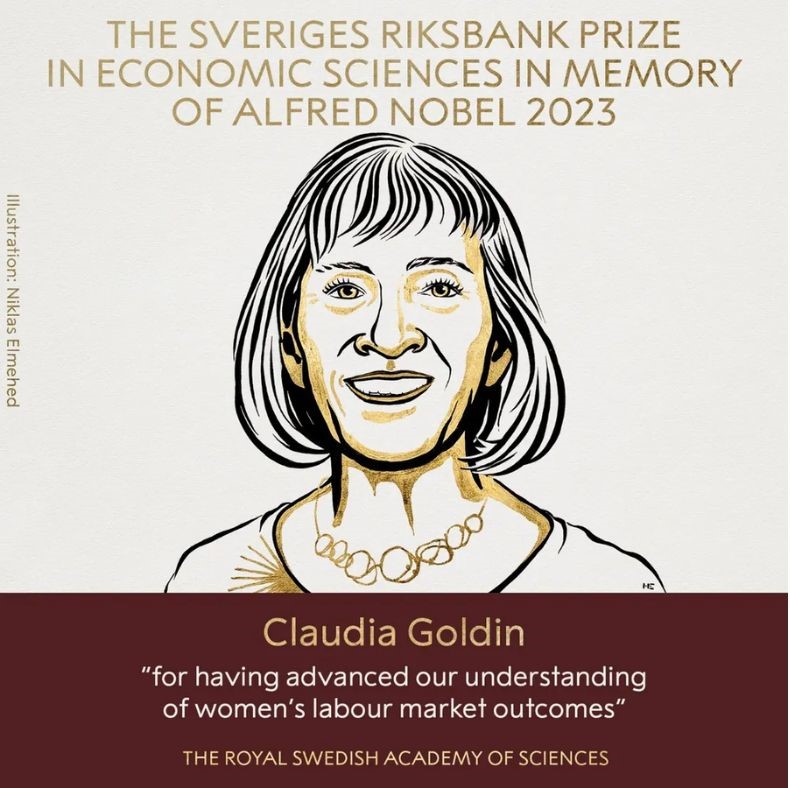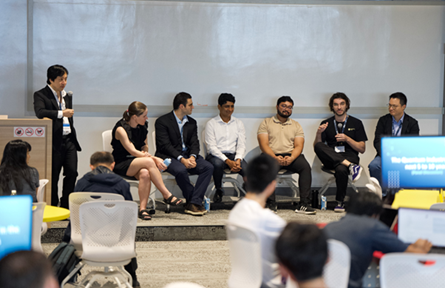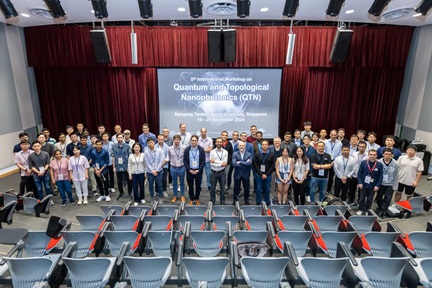2023 Nobel Prize in Economic Sciences: Advancing the Understanding of Women's Labour Market Outcomes
The 2023 Nobel Prize in Economic Sciences was awarded to Prof Claudia Goldin of Harvard University for her groundbreaking contributions to our understanding of women's labour market outcomes. Drawing on 200 years of U.S. data, Prof Goldin unveils gender gap in earnings and employment rates, and explains how these differences have evolved over time. Remarkably, she holds the distinction of being the first female tenured professor at Harvard’s economics department and the first woman to win the Nobel Prize in Economics solo.

© Nobel Prize. Illustration: Niklas Elmehed
Women are significantly underrepresented in the global labour market. They are less likely to work, and even when they do, they often earn less than men. Prof Claudia Goldin’s research spans two fields—labour economics and economic history—and she applied a comprehensive framework to explore how women's labour market outcomes have changed over two centuries. After gathering, correcting, and analysing over 200 years of U.S. historical data, Prof Goldin uncovered unexpected trends. Many assume that women's labour force participation has always been on a steady upward trajectory, but her findings reveal a U-shaped curve. Novel data from the 1800s reveals a sharp decline in women's participation from around 60% to 15-20% in the early 1900s. Goldin attributes this U-shaped pattern to shifting societal attitudes and industrial conditions, including the stigma associated with married women working in factories.
Prof Goldin's research doesn't just explain the past; it also addresses contemporary issues. She examines modern changes, such as the impact of education and birth control, and how they shape women's roles in the workforce. For example, she demonstrated that the introduction of birth control pills in the late 1960s enabled women to independently control their reproductive choices, which changed the course of their careers and allowed them to plan their futures more effectively. As a result, they had greater motivation to pursue their education and careers with greater determination. Her work provides a long-term perspective on gender dynamics in the labour market, allowing insights into transitions from agricultural to industrial, and then to office-based societies. This comprehensive view can also offer valuable lessons for developing countries today.
Prof Goldin's relentless exploration and innovative approach inspire many researchers to delve into similar questions in the U.S. and around the world. She proved that with persistence and creativity, even subjects previously considered unquantifiable, like women's labour market participation in the 1800s, can yield significant data. Her groundbreaking work bridges labour economics and economic history, offering a robust framework for understanding the evolving role of women in the economy.
For more information, watch the video on Prof Claudia Goldin’s takeaways from her research on women and work.














/enri-thumbnails/careeropportunities1f0caf1c-a12d-479c-be7c-3c04e085c617.tmb-mega-menu.jpg?Culture=en&sfvrsn=d7261e3b_1)

/cradle-thumbnails/research-capabilities1516d0ba63aa44f0b4ee77a8c05263b2.tmb-mega-menu.jpg?Culture=en&sfvrsn=1bc94f8_1)






